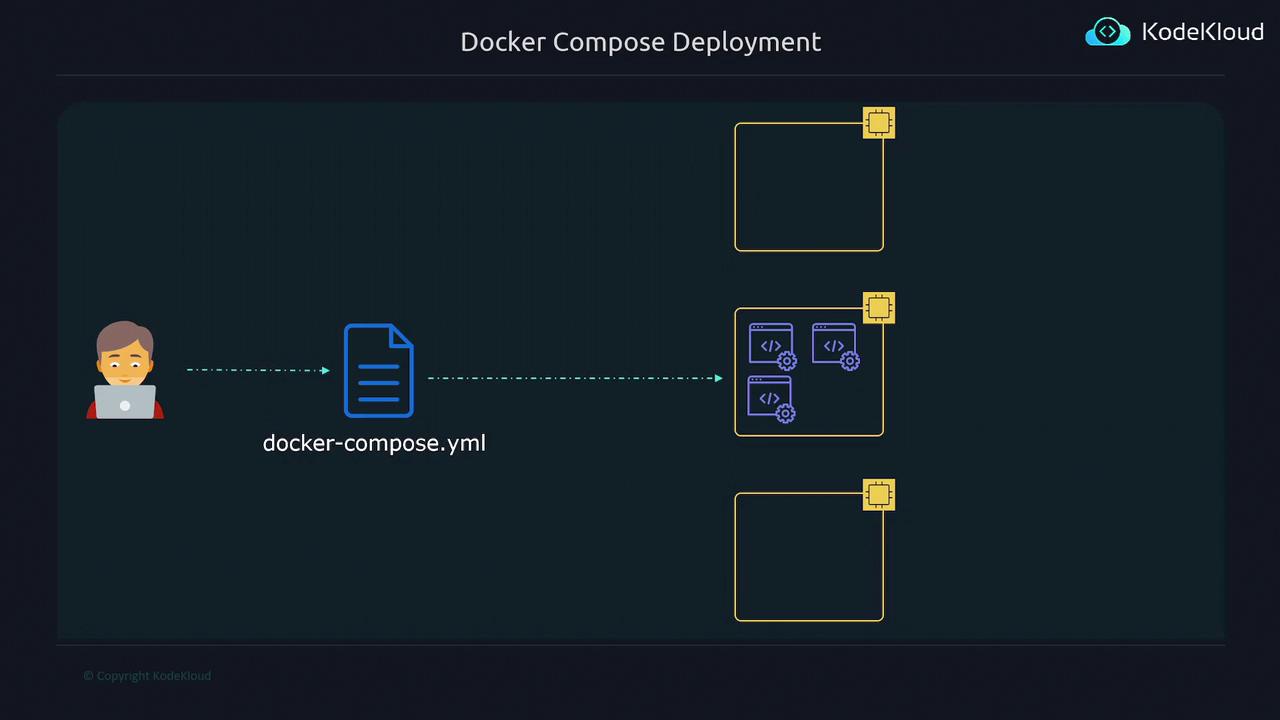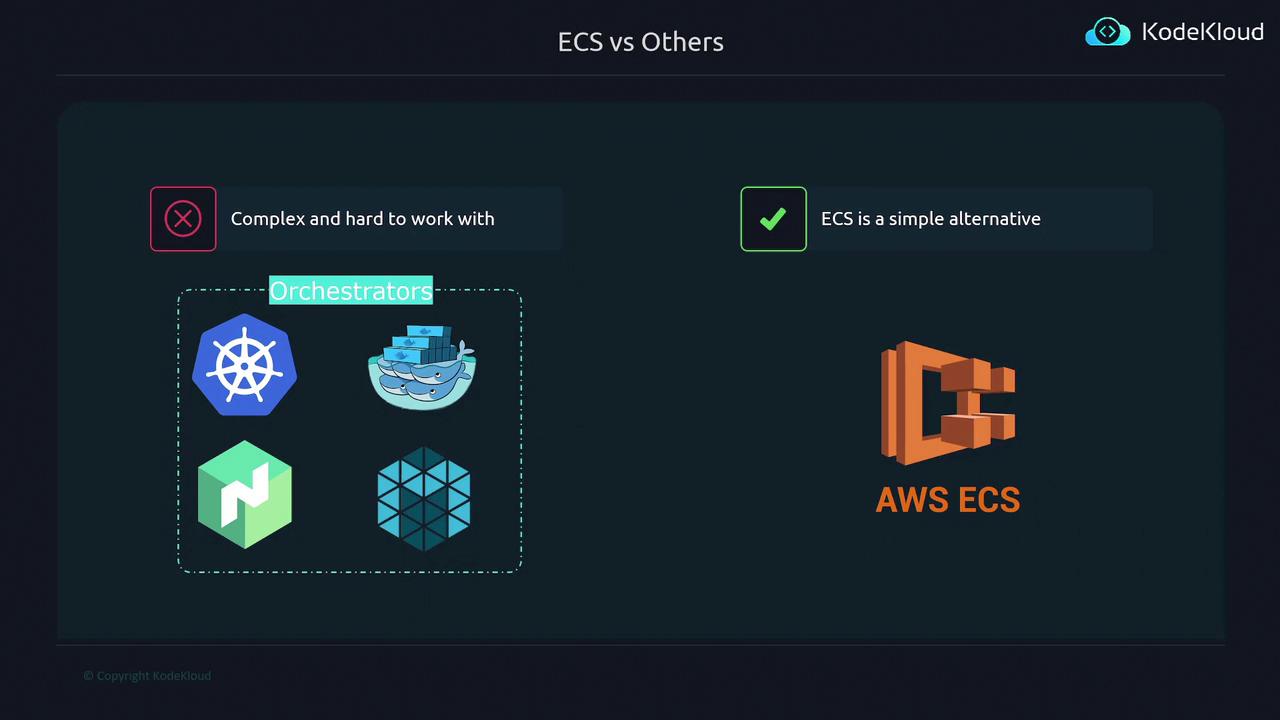Amazon Elastic Container Service (AWS ECS)
Understanding ECS
ECS vs Others
In this article, we explore how to deploy an application in a plain Docker environment—without relying on an orchestrator. Traditionally, most users employ the Docker run command or Docker Compose for container deployment. However, these approaches have limitations, especially in multi-server environments and dynamic scaling.
Deploying with Docker Compose
A typical Docker Compose file encapsulates all container configuration details. Imagine a scenario with multiple servers: using Docker run or Docker Compose manages containers on a single host by default. While you can replicate the Compose file on each server, this method only launches independent instances of your application. There is no inherent coordination among the different server deployments.

Note
Docker Compose is excellent for local development and single-host deployments but lacks cross-host orchestration capabilities.
Scaling Challenges and Continuous Updates
Scaling your application to handle increased traffic in a Docker Compose environment is not seamless. You may need to manually scale up or down, and orchestrated scaling is not automated. Moreover, rolling out updates without causing downtime or disrupting end-user traffic remains a significant challenge with non-orchestrated environments.
Traditional Orchestrators
Traditional container orchestrators such as Kubernetes, Hashicorp Nomad, and Apache Mesos offer robust solutions to these challenges. They provide intelligent scaling, coordinated deployments, and smooth updates. However, these solutions can be complex to set up and maintain, especially for users who need a simpler, streamlined approach.
AWS Elastic Container Service (ECS)
AWS introduced Elastic Container Service (ECS) as a simpler alternative. ECS offers an intuitive graphical interface for specifying application configurations, while AWS manages deployment, scaling, and overall container management behind the scenes.

Key Benefit
ECS simplifies container orchestration by abstracting the heavy lifting of deployment, scaling, and management. This makes it an ideal choice for users looking to avoid the complexities of traditional orchestrators.
Summary Comparison
| Feature | Docker Compose | Traditional Orchestrators | AWS ECS |
|---|---|---|---|
| Deployment Scope | Single host only | Multi-host orchestration | Managed multi-host deployments |
| Scaling | Manual scaling | Automated scaling | Automated scaling with simplified GUI |
| Update & Rollouts | Challenging | Seamless updates | Seamless updates managed by AWS |
| Setup Complexity | Minimal | High (requires setup, configuration) | Lower complexity, managed service |
Conclusion
While Docker Compose serves well for isolated or local container deployments, its limitations become evident in multi-server setups and when dynamic scaling is required. Traditional orchestrators offer powerful features but come at the cost of increased complexity. AWS ECS bridges this gap by delivering a user-friendly solution with robust orchestration capabilities.
For further reading on container orchestration and AWS ECS, check out the following resources:
Watch Video
Watch video content